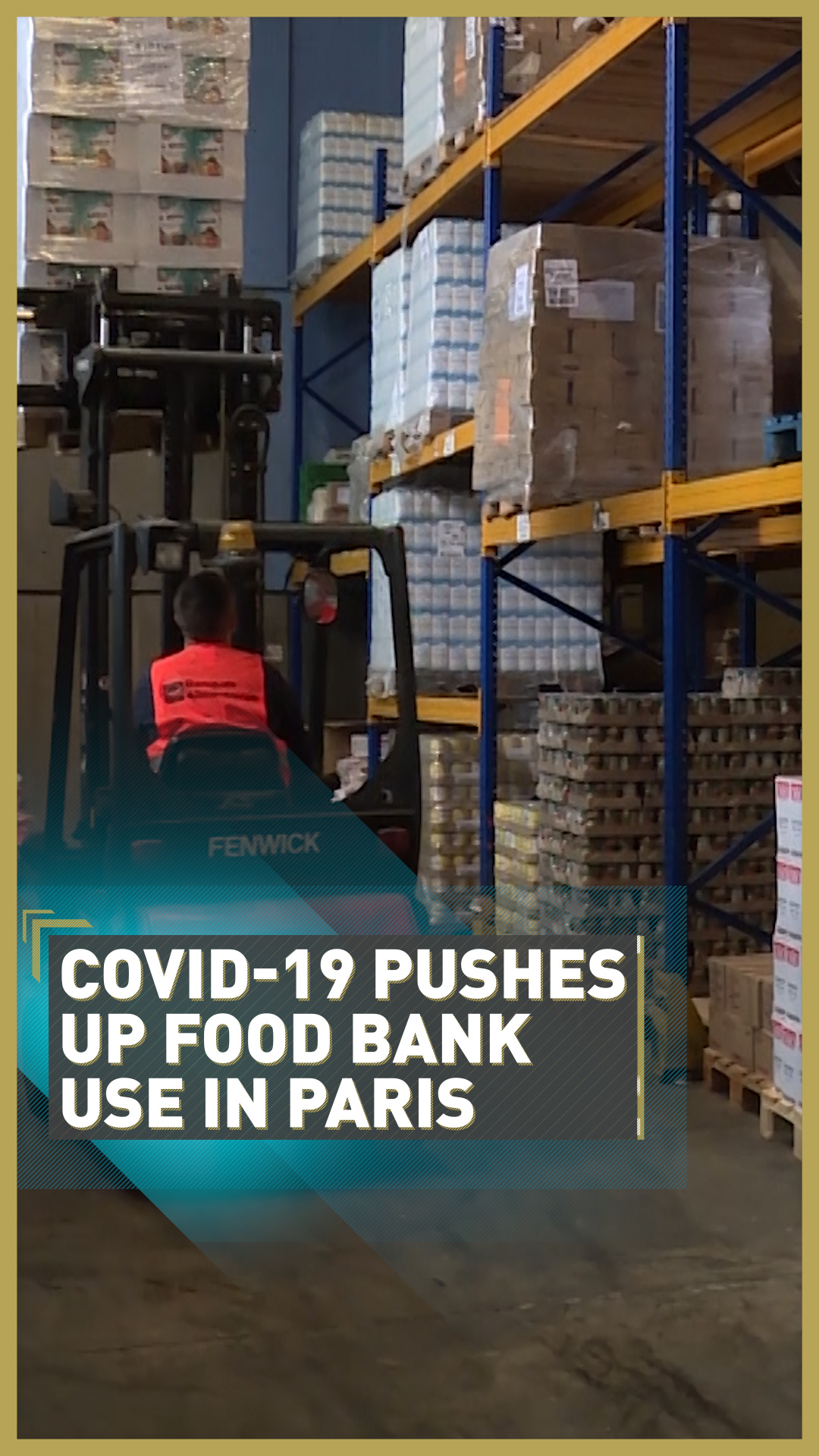02:14

In France, an increasing number of people are relying on food banks to provide for their families.
The country is suffering its deepest recession since World War II and thousands of workers who have been furloughed or made redundant are being forced for the first time to turn to charities for aid.
"Before the crisis, I never thought I'd be here," says Hamza, an engineering student.
Watch: COVID-19 to push up UK poverty levels - state aid expert explains why

There are two major food bank suppliers in the Paris region, which together provide for more than 200 charities, who pick up orders and then take the food to distribute at a local level. /CGTN Europe
There are two major food bank suppliers in the Paris region, which together provide for more than 200 charities, who pick up orders and then take the food to distribute at a local level. /CGTN Europe
"I work while studying, earning €500 ($570) to €600 ($685) a month, so I thought it was enough. I never thought I'd have to come here."
Natalia, who was an assistant in a cake shop, has been furloughed from her job. She is now using a food bank and fears being laid off permanently.
"With all the loans we have, the children, parental leave and then being furloughed, it has been difficult for us to survive financially," she says.
Food banks rely on distribution centres to stockpile goods such as sugar, pasta, cheese, milk and fresh fruit and vegetables. These are donated by smaller local stores and larger retail chains.
There are two major food bank suppliers in the Paris region. Together they provide for more than 200 charities, who pick up orders and then take the food to distribute at a local level.
Read more: Food banks overwhelmed, struggle to replace elderly workers
French president Emmanuel Macron has talked about the COVID-19 pandemic creating a social crisis as well as a health and economic crisis.
The government is warning that up to eight million people in France might need food aid by the end of the year.
"During lockdown, schools were closed so children couldn't eat at canteens which are really cheap or even free," Nicole Farlotti, the president of the greater Paris food bank service, tells CGTN Europe.
"And suddenly, these families had to pay to feed their kids twice a day, seven days a week. So these families that were already on the edge are now in an even more precarious situation."
But the problems created by the lockdown have not receded. Schools are back but the threat of job cuts for parents is looming.
And increases in social problems such as the rise in people needing help getting food and drink could put a brake on the investment injections that the government has promised.